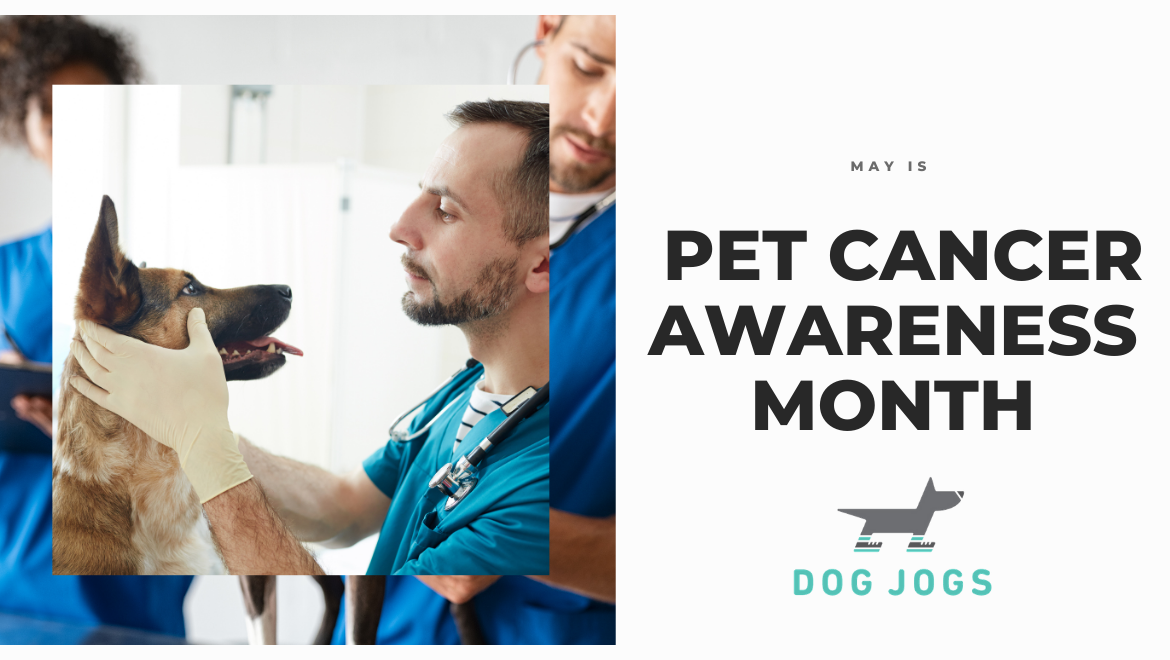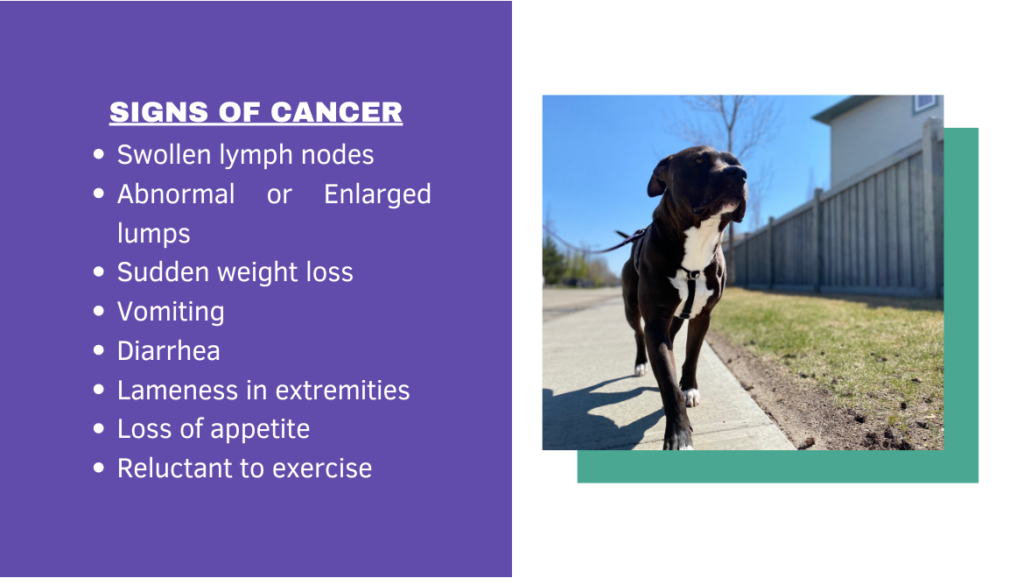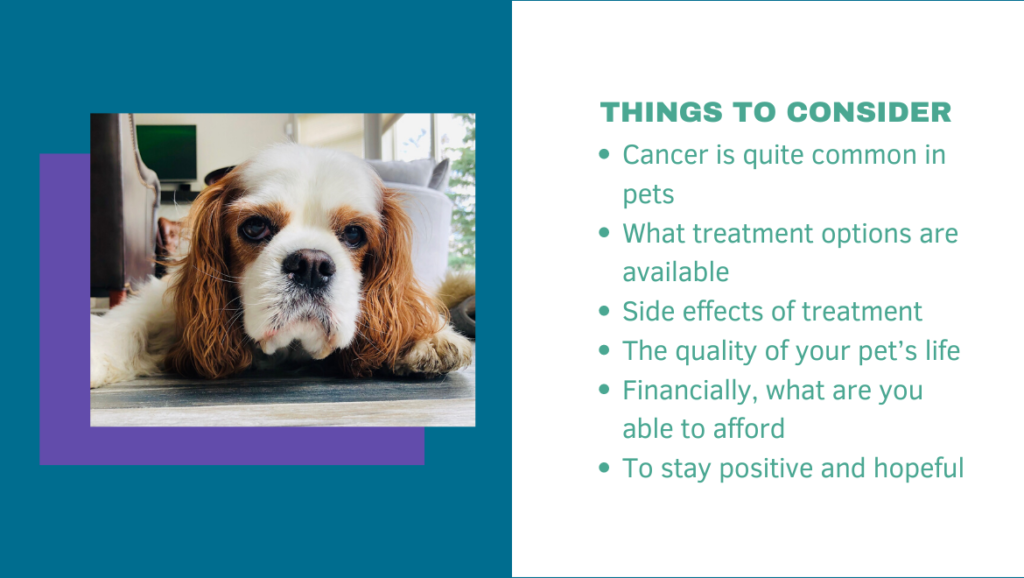May – Pet Cancer Awareness Month

This month, we hope to bring awareness and help pet owners recognize the signs and symptoms of cancer in pets. Pet health is important every month of the year but, May is a great time to remind pet owners to book those checkups! Unfortunately, pets of all ages, breeds, and sizes can develop cancer. However, some dog breeds and older pets have a higher chance of developing cancer than others. Breeds like German Shepards, Golden Retrievers, Bernese Mountain Dogs, and Rottweilers are all considered more likely to develop cancer. Early detection of cancer increases the chance of cancer going into remission, which could mean that your pet has a better chance to fight it!
Here Are Some Signs And Symptoms To Keep An Eye Out For:
- Swollen lymph nodes
- Abnormal or Enlarged lumps
- Sudden weight loss
- Vomiting
- Diarrhea
- Lameness in extremities
- Loss of appetite
- Reluctant to exercise

If your pet shows any of these symptoms, get them checked out by your veterinarian as soon as possible. Your veterinarian will conduct the necessary diagnostics to determine whether your pet has cancer or not. If your pet has developed cancer, your veterinarian can then distinguish what treatments are suitable. Again, early detection will increase the chances of cancer going into remission. The treatments that are available for pets are similar to those available for humans. The most common treatments include chemotherapy, radiation, and surgery. Some veterinarians in Edmonton (and surrounding areas) also offer complimentary treatments like homeopathy, acupuncture, rehabilitation, and chiropractic treatments.
What Are The Most Common Types Of Cancer Found In Dogs?
- Mast cell tumors – accounts for 20% of skin tumours in dogs
- Melanoma – a type of skin cancer
- Lymphoma – cancer of the lymph nodes and lymphatic system
- Osteosarcoma – bone cancer
- Hemangiosarcoma – cancer of blood vessels walls
- Soft-tissue sarcomas – general cancer of connective, muscle or nervous tissues
Learning that your pet has cancer is not a pleasant experience for anyone involved. But prevention and early detection increase chances of survival and a higher quality of life for your pet. Many veterinarians recommend regular wellness checks every 6 or 12 months, and maybe more often, depending on your pet. It’s also important to check your pets yourself at home and a head-to-tail physical check for lumps and monitoring for other signs they may exhibit.
Things To Consider If Your Pet Has Cancer:
- Cancer is quite common in pets
- What treatment options are available
- Side effects of treatment
- The quality of your pet’s life
- Financially what are you able to afford
- To stay positive and hopeful

How Can Dog Jogs help?
The Dog Jogs team will watch over your pets and report anything out of the ordinary during our services. Many members of our dog walkers are Walks ‘N Wags Pet First Aid Certified. The goal is to have all team members certified once we are able to do so, safely. Pet First Aid Certified dog walkers have the tools to recognize the signs and symptoms of many health conditions. And are taught how to work through emergencies.
Have questions about how we can help keep an eye on your pet? Book a consultation! We are now offering virtual consultations.